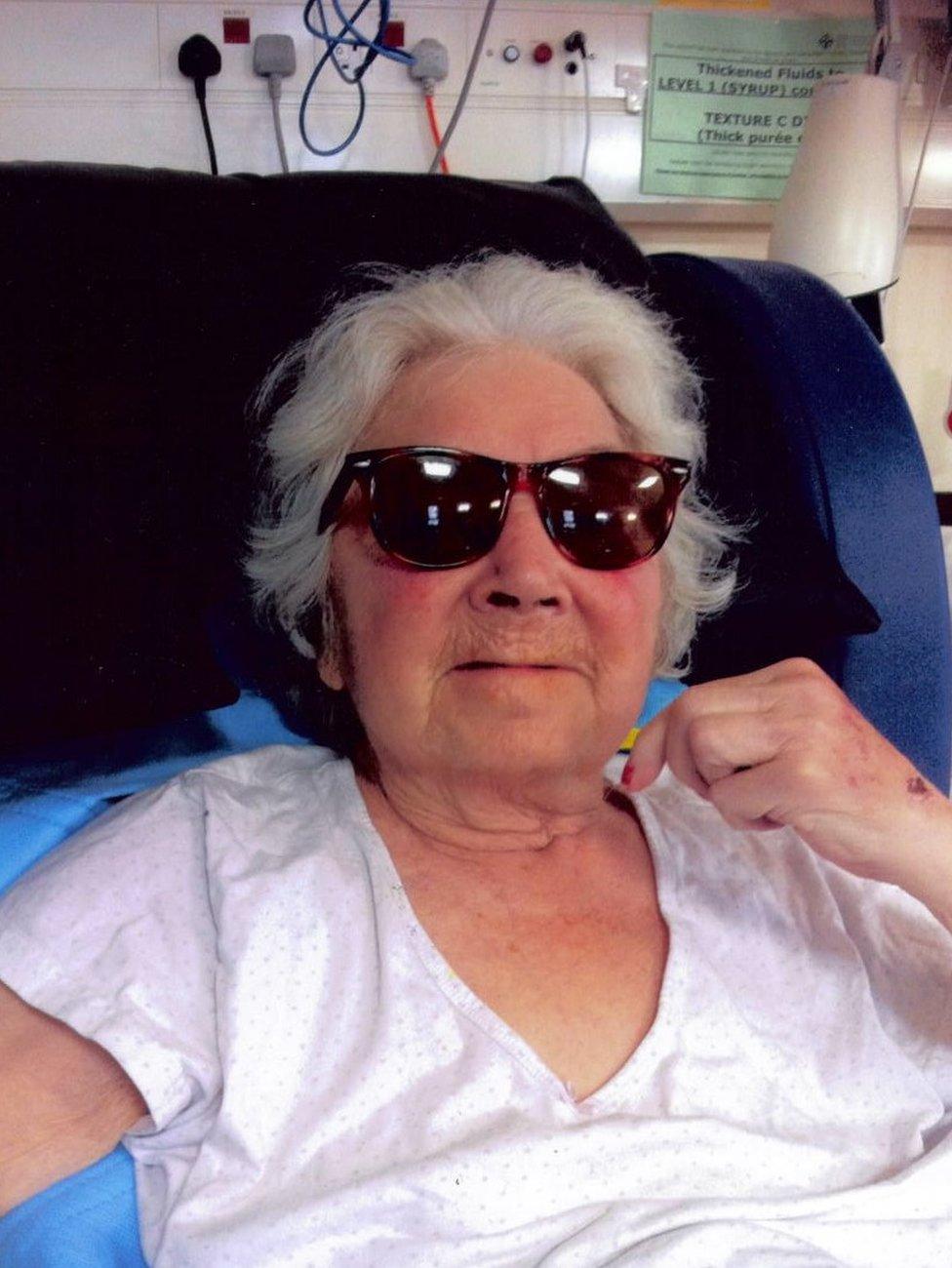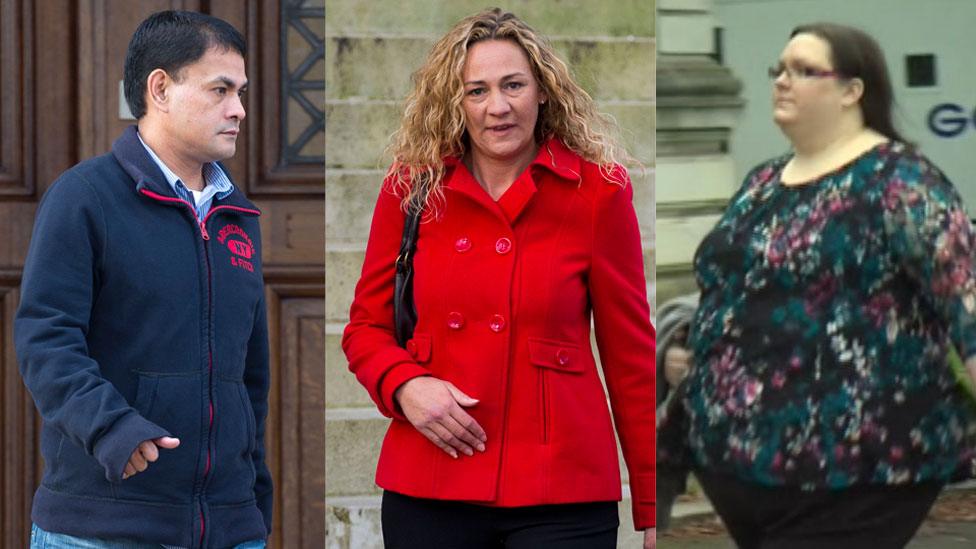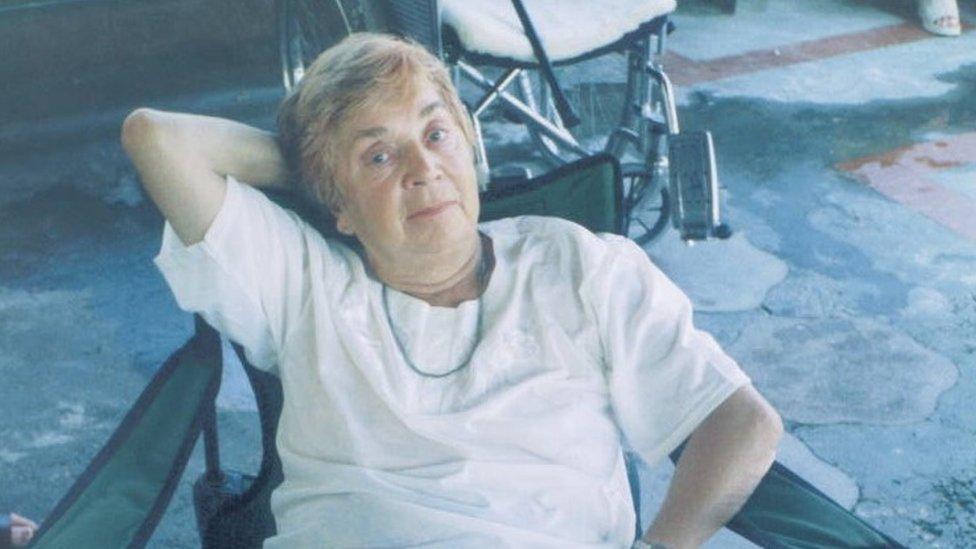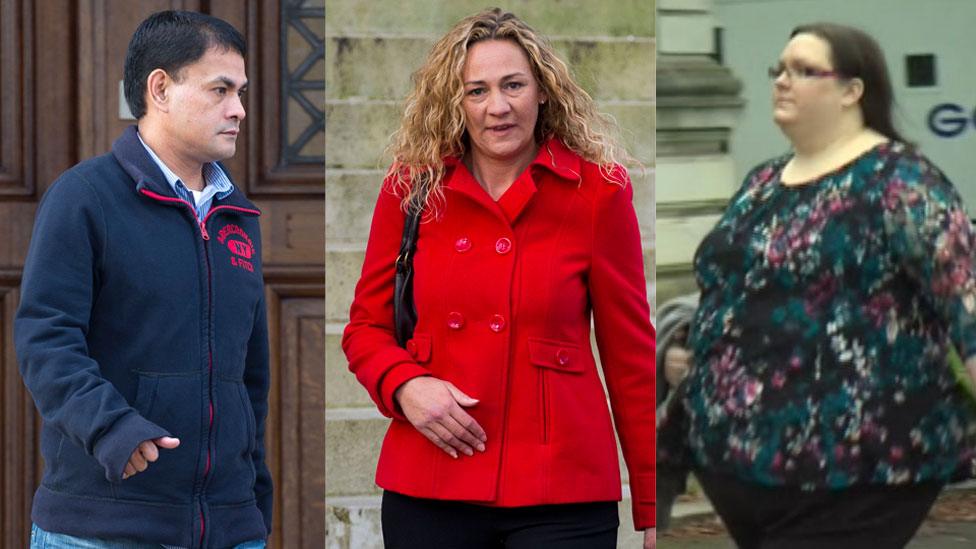Investigation led to hospital changes
- Published
As two nurses are jailed for wilfully neglecting patients, BBC Wales' India Pollock recalls the investigation into care of the elderly which led to a government-sponsored report into care standards in Welsh hospitals.
I first met Gareth Williams at his home two-and-a-half years ago. I spent a few hours listening to him tell me how his mother had been treated in hospital and the frustration he experienced in trying to make people listen to his concerns.
From what Gareth told me, the care of his mother at two hospitals in south Wales was shocking. He shared a number of documents that confirmed what he had told me.
I left his house with a determination to expose the poor care that Lilian Williams had received at the Princess of Wales Hospital, in Bridgend and at Neath Port Talbot Hospital before her death.

Lilian Williams was admitted to hospital three times before she died in November 2012
At that time I didn't know that Lilian Williams' story was the beginning of an expose that would lead to, arguably, one of the most damning reports about care standards in Wales.
Nor did I realise the number of stories I would hear from relatives of other patients who had received poor care while being treated in hospitals across Wales.
There is always a sense of urgency with stories relating to vulnerable people in care but it can take a lot of time to piece together the information you have in order to get a true picture of what has happened.
So began the painstaking process of sifting through the evidence - documents, videos and interviews - to write a timeline and build a true picture of what happened to Lilian Williams.
Suspended
Gareth had been working with the police on their criminal investigation which began after the health board raised concerns. Two nurses had been arrested following allegations of patients' notes being falsified. Thirty-nine patients had been identified, Lilian Williams being one of them.
We had to be careful not to prejudice that investigation but also make sure we exposed the poor care.

Nurses Lauro Bertulano, Natalie Jones and Rebecca Jones all admitted neglect
Fifteen nurses were suspended in the course of the health board's own investigation, which began in February 2013.
On Monday, two nurses were jailed for wilful neglect of patients at the Princess of Wales Hospital and a third was given a community sentence.
We broadcast our first story in July 2013. The following day we had to draft an extra member of staff onto our team to help with the number of calls and emails we received from people complaining about the standard of care they or their relative had experienced in hospital.
It was a few months later in October when I received a call from Gareth who told me that Mark Drakeford, the health minister, had commissioned an independent review into the two hospitals in Abertawe Bro Morgannwg University Health Board.
Gareth was happy. He felt that finally his concerns were being taken seriously at the highest level. But his satisfaction was short-lived as he felt the remit of the inquiry was too narrow.
The report, when it was published in May 2014, was a shocking read. A catalogue of failings was exposed.
Some people weren't getting the medication or the food and water they needed. Some older patients who couldn't get up to use the bathroom were told to go to the toilet in their beds. One person even told the review team: "I am in hell."
Even though I had already heard the details of a number of terrible cases it still made for very difficult reading.
The health minister - and the first minister - apologised to the patients and relatives who had been affected. Mark Drakeford announced that a series of spot checks would take place at all the major hospitals in Wales.
Cultural change
It's important to say during this period ABMU health board kept us informed of the steps they were taking to try to improve care. They employed more than 80 new staff, including 75 new nurses for the emergency department.

Lilian Williams' family described her hospital care as 'absolutely appalling'
Concern clinics were run for people to talk to senior staff about any issues they had. More training was put in place around many different areas including dignity and respect.
They encouraged feedback from patients and families and commissioned their own external review to look at safety and quality of care. Mortality rates also fell to numbers that were more in line with the Wales average.
They invited us in a number of times to film and interview patients about care standards. It was clear that they wanted a big cultural change.
Despite that, there was a period of time when comparisons between the NHS in Wales and the NHS in England were in the UK press most days.
Then it moved from headlines in the tabloids to discussions in Westminster and accusations levelled at both countries. One of our jobs was to ignore the hysteria and remain focused on reporting the facts.
In September 2015, a follow-up review of the two hospitals was carried out. It said that the public should be "significantly reassured" and that "excellent progress" had been made but said some areas required more work.
Other than the three sentenced nurses, no other criminal charges were brought in relation to Lilian Williams' care.
Courage
Having worked on this story for two-and-a-half years now, I still have questions.
Why did those three nurses wilfully neglect vulnerable patients who didn't have the capacity to look after themselves?
What drives someone who works in a caring profession to tolerate hazardous practices and fake records?
You can speculate but only the nurses themselves could answer that.
Ordinary people, such as Gareth Williams, don't contact me - or any other journalist - because they want to be on television or in the news.
It takes courage to speak publicly about bad things that happen to vulnerable people you love and we must be grateful to those who do and who fight for change.
While it might be too late to make a change for Lilian Williams, her legacy is the improved care and treatment of elderly patients in hospitals across Wales.
- Published14 December 2015

- Published12 November 2014
